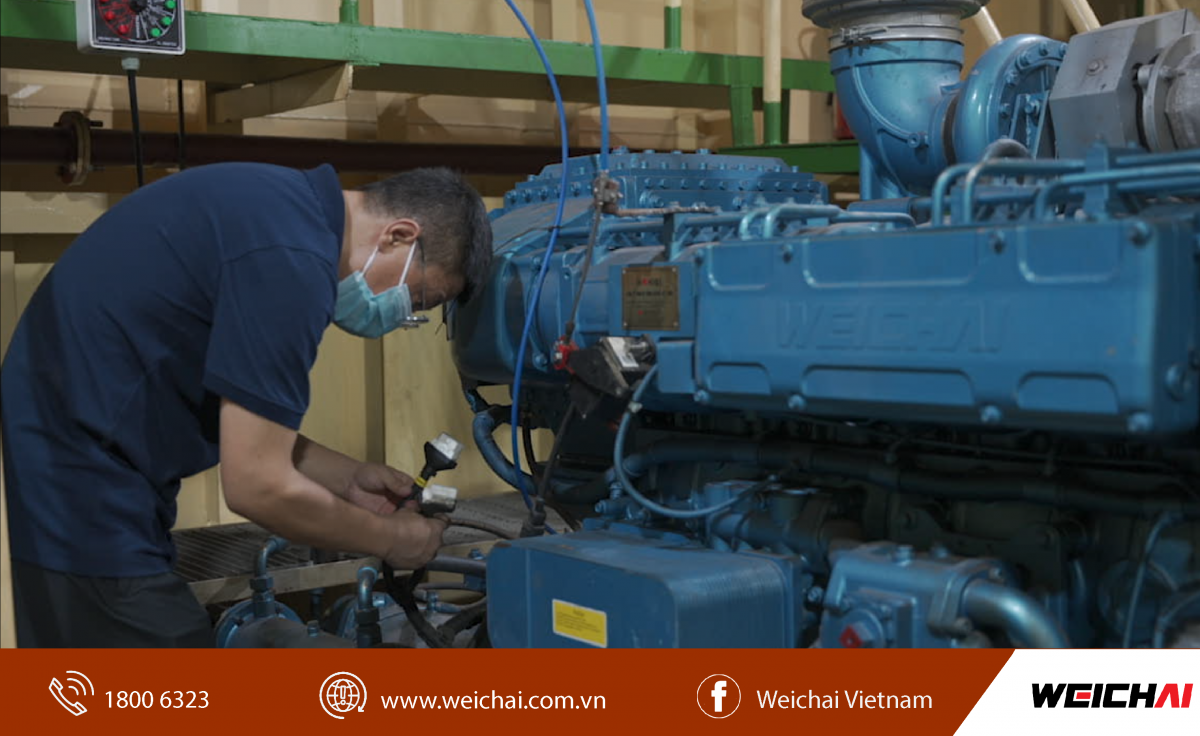To maintain the normal performance of ship’s main engine and auxiliary engines is of first importance to secure the safety of vessel. The engine room is installed with many different types of mechanical systems, requiring engineers to operate, check and maintain the engines carefully without any negligence.

In the previous article, Weichai shared things to note before starting the engine. In this article, Weichai focuses on some checks after the engine is operated.
- After the engine starts, check the safety protecting equipment switches and alarm switches at normal running position.
- Check and confirm if the insulation and shield of exhaust pipe and manifold is integrity. Fuel injector pump, fuel oil pipe or lub. oil pipe leaks must be remedied once it is observed. It is strictly prohibited to leave such leaks unattended to avoid fuel oil or lub. oil from splashing or spraying onto the exhaust pipe/manifold consequently causing fire.
- In the event that the exhaust temperature soars or drops drastically, take firing pressure immediately to ascertain the causes and rectify same promptly.
- If the auxiliary engine consumes heavy fuel oil or blended oil, it must be changed-over to consume diesel oil at least one hour before stopping.
- If the auxiliary engine consumes heavy fuel oil or blended oil, after auto stop or emergency stop, all fuel oil inside the fuel line system must be purged out completely superseding by diesel oil to prevent remaining fuel oil, after cooling down, blocking the system.
- Main engine emergency operation test should be carried out once every three months.
The operations of different types of engines are not similar at all. Marine engineers will base on the actual situation and operating principles of each type of engine to make appropriate adjustments. Therefore, engineers play an important role in helping ships operate stably and safely.
Marine Engineering
